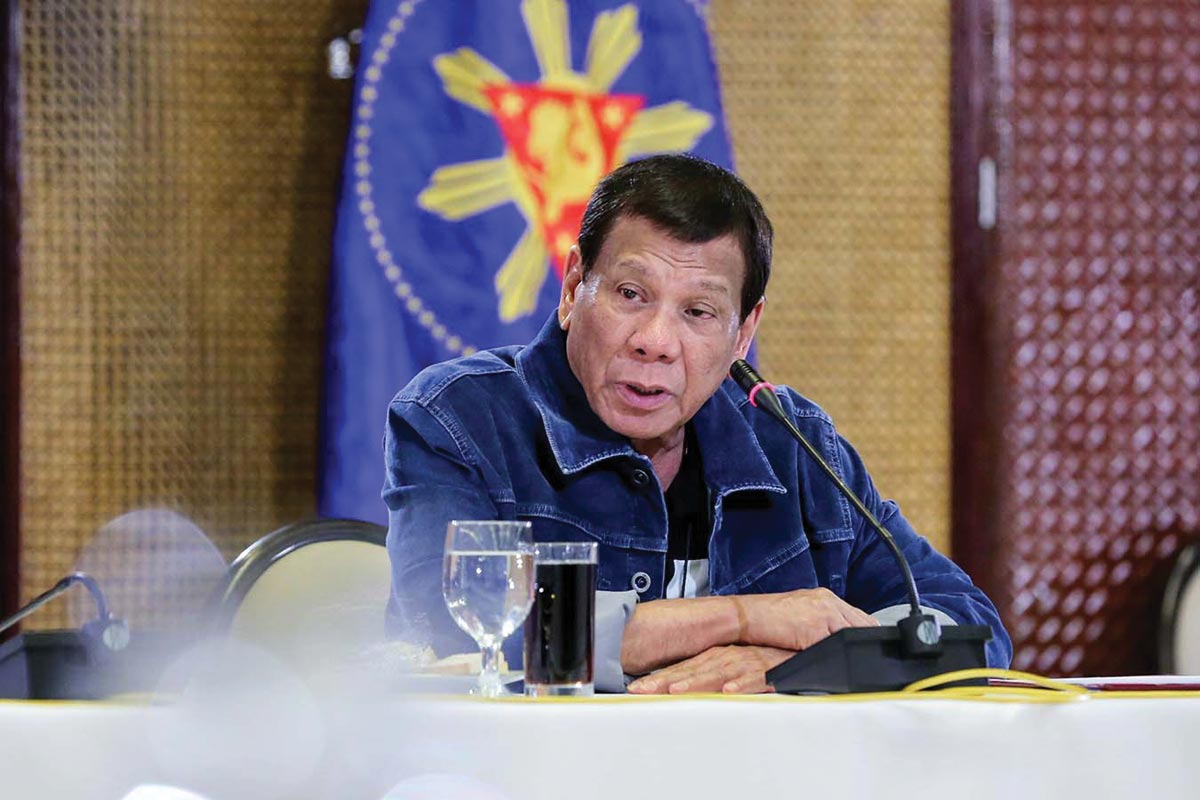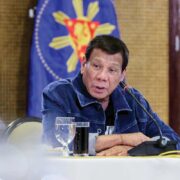
PHILIPPINE President Rodrigo Duterte is turning to the public as he remains undecided on what to do with the Visiting Forces Agreement (VFA).
In a public address aired Wednesday night, February 24, he admitted that he doesn’t know whether to renew or abrogate the agreement with the United States, adding that he wants to hear Filipino public’s sentiment.
“I must be frank, I do not keep secrets to the people. I have not yet decided on what to do.
Meaning to say, to abrogate or renew because I want to hear the people,” said Duterte.
“I want the narratives to come up, not necessarily from the [lawmakers]. Well, of course they count very much pero hindi limitado dito sa (but it is not limited to) Congress,” he added.
Duterte said the public can submit their opinion on VFA through the government’s 8888 citizens’ complaint hotline.
“Ordinary mamamayan (citizens) can have the say and I said there’s always the 888 and you can enter your objections or any comment that you think would help the country. Pati kami dito, matulungan ninyo (You can help us),” he said.
Earlier this month, Duterte said the U.S. would have to “pay” to keep the VFA from being terminated.
“I would like to put on notice if there’s an American agent here that from now on, you want the Visiting Forces Agreement done? Well, you have to pay,” Duterte said in his speech on February 12 at Clark Air Base in Pampanga.
“It’s a shared responsibility but your share of responsibility does not come free because after all when the war breaks out, we all pay,” he added.
Malacañang then said that the Philippines should get “something like $16 billion or close to that amount” from the U.S.
Citing a study by Washington-based Stimson Center on counterterrorism spending, Presidential Spokesperson Harry Roque noted that the Philippines only received $3.9 billion for counterterrorism efforts compared to Pakistan’s $16.4 billion.
“When did Pakistan become an ally of America? They do not have a basis to say that they have a longstanding relationship with America unlike the Filipinos who died in the Death March during World War II,” he said on February 15.
Roque also cited the Enhanced Defense Cooperation Agreement, a 2014 deal that gave American soldiers access to the Philippines’ military establishments.
“But how much are we getting for this? According to the study, we got $3.9 billion. Is this a big amount? It is loose change when compared to what other countries got,” he said.
The spokesman continued: “Pakistan got $16 billion, we think we should get something similar or close to that amount. But definitely, not the amount we are currently getting.”
The VFA, which came into force in 1999, covers the conduct of U.S. soldiers in the Philippines. Among the provisions of the deal include relaxed visa and passport policies for U.S. troops, and the rights of the U.S. government to retain its jurisdiction over its military personnel when they commit crimes in the Philippines.
In February 2020, the Philippines sent the U.S. a notice terminating the VFA reportedly after the U.S. canceled Senator Ronald “Bato” Dela Rosa’s visa.
The termination was later suspended in June “in light of political and other developments in the region,” and the suspension was extended in November for another six months to enable the Philippines and the U.S. to find a more enhanced, mutually beneficial, mutually agreeable, and more effective and lasting arrangement on how to move forward in their mutual defense.
In December, the president threatened to continue with the VFA’s termination if the U.S. did not extend at least 20 million vaccines to the Philippines. (Ritchel Mendiola/AJPress)





